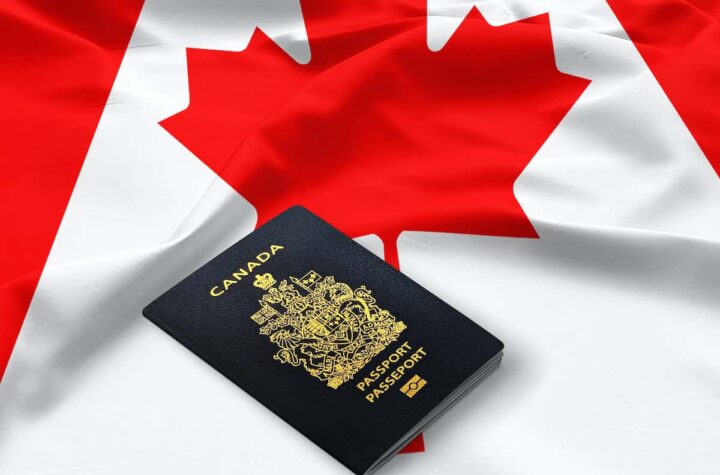
Medicare Cover in PA
If you’re one of the thousands of people planning on retiring in 2020, you have healthcare on your mind. After all, experts say couples who are 65 years old should plan on having spent $295,000 on their health care in their lifetimes.
As you near 65, you hear friends and family talk more about Medicare, but you still may not fully understand what this program entails. Keep reading to learn everything you need to know about what Medicare covers in Pennsylvania, how to sign up, and what Medicare will cost you.
What is Medicare?
Medicare is the federal government’s solution to senior health care costs. It is a health insurance program specifically for individuals who are 65 years old or older. It also covers younger individuals who have disabilities or individuals with end-stage renal disease.
How to Sign Up For Medicare
You do not necessarily receive Medicare benefits the day you turn 65. You will have to sign up for it. You have a seven-month window in which you can sign up for Medicare.
You can sign up as early as three months before your birthday month or three months after your birthday month.
If you’re not currently receiving Social Security benefits, then you will have to take the initiative to sign up for part A and B.
Part A covers hospital stays and the other health care that comes with aging. This includes hospice care, care in a nursing facility, and home health care services.
Part B covers your doctor visits. This includes preventative services, outpatient care, and medical supplies.
If you’re not receiving Social Security benefits, you will not receive Medicare automatically the day you turn 65. you will have to sign up. You can sign up for Medicare at the Social Security website.
However, if you are receiving Social Security benefits, you’re already in the system. You will automatically receive Medicare Part A and Part B automatically. You’ll know you’re alright when you receive your “Welcome to Medicare” packet three months before your 65th birthday.
Make sure you sign up for Part A and Part B on time. If you miss your deadline, the system will delay your enrollment. You may even end up having to pay a late-enrollment penalty.
Signing Up For Medicare Advantage
The 7-month period of eligibility is also the same window for you to join a Medicare Advantage Plan or a Medicare drug plan.
Private companies contract with Medicare to provide seniors with Part A and Part B benefits. This program is called Medicare Advantage. These plans often offer prescription drug coverage as well.
Typically this enrollment period is during that 7-month time frame. However, if you have life events that change your circumstances, then you can enroll during a special enrollment period.
What is Medicare Part A?
Medicare part A is your hospital insurance. It takes care of the costs you incur when you have to stay in the hospital as well as the costs that come should you need care beyond the hospital walls. If you end up in a skilled nursing facility or if you’re at home with hospice care or home health care, part A covers you.
You do not typically have to pay a monthly premium for Part A. If you’re age 65, you will receive premium-free Part A when you have the following circumstances:
- You’re retired and receiving retirement benefits.
- You are eligible to receive Social Security benefits or Railroad benefits. Even if you haven’t filed for these benefits, your eligibility means you’re premium-free.
- Your spouse or you received government employment with Medicare coverage.
If you’re a youngster under the age of 65, do not fret. You can still receive premium-free Part A with the following qualifications:
- You received your Railroad Retirement Board disability or Social Security disability for 24 months.
- You have End-Stage Renal Disease. This means your permanent kidney failure requires a kidney transplant or dialysis.
Part A Premiums
You can still purchase Part A if you do not qualify for a premium-free Part A.
Your cost will depend on how much you paid into Medicare during your working years. You could pay up to $458 a month if you paid Medicare taxes for fewer than 30 business quarters. However, if you paid for 30-39 quarters, then your Part A premium drops to $252.
If you opt to pay for Part A, you will also have to pay for Part B. Part B covers outpatient care, doctor services, preventative services, and medical supplies.
Basically, you cannot pay for hospital insurance and not have a doctor’s insurance as well. The premium you pay will cover you for both Part A and Part B.
What is Medicare Part B?
Part B is your medicare care coverage. This means it covers anything related to going to a physician. It will cover your doctor visits, medical supplies, outpatient care, and preventive services.
If you’re receiving Social Security benefits, you automatically qualify for Part B and do not have to sign up. However, if you’re not receiving those benefits, sign up in that seven-month window either three months before your birthday month or three months after your birthday month.
Failure to sign up on time will result in a late-enrollment fine.
Part B Cost
Nothing good comes for free. Anyone who has lived any amount of years knows this. So, then, how much does Medicare cost?
Part B is not free. The powers-that-be will deduct the benefits from your benefit check if you receive a benefit from the Railroad Retirement Board, Social Security, or the Office of Personnel Management.
If you do not currently receive these benefits, the government will send you a bill.
Your premium costs depend on your income tax returns. If you’re signing up for part B in 2020, you can plan on paying at least $144.60 a month. Most people pay this amount.
However, if you have a higher tax return you will pay more. The government will use an Income Related Monthly Adjustment Amount and add the extra to your premium.
So, for example, if your individual tax return exceeds $500,000 or if your joint tax return exceeds $750,000, you can plan on paying $491.60 a month.
What is Medicare Part C?
Parts A and B cover the basics of healthcare for many people. Part C is also known as Medicare Advantage.
Part C is a “bundled” plan provided by a private insurance company that is contracting with the federal government. The bundle includes Part A, Part B, and often Part D.
Original Medicare is adequate, but it has limitations. For example, it does not cover hearing, vision, and dental. Part C plans fill in the gap for the things that original Medicare does not over.
Because the private companies are contracting with the federal government, they must follow the same coverage rules that Medicare has. They have the same enrollment periods, and they must notify you of changes you will see in coverage before the next enrollment year.
Research Medicare Advantage plans carefully. They each have their own benefits.
For example, if you have a medication that Medicare and other insurances do not cover, each Medicare Advantage plan can charge a different fee for drug costs.
Medicare Advantage plans can also have different rules for how you receive medicare services.
Resources like MedicareWire help you find the best Medicare Advantage plan for you in your particular area of Pennsylvania.
What is Medicare Part D?
Part A and B cover your hospital and doctor costs, and Part C helps supplement other needs as you age. But what about the medications you need?
As you age, you will find you need more prescription drugs than ever before. Part D covers the cost of these necessary drugs. This coverage even includes recommended vaccines and shots.
If you want the fullest benefits of Part D, you need to join a Medicare-approved plan which includes drug coverage. So as you look at your Medicare Advantage options, make sure they have a Medicare-approved plan with drug coverage.
How is Medicare Specific to Pennsylvania?
Medicare is no different in Pennsylvania than in any other state in the country. You still need to enroll in the 7-month period that takes place three months before your 65th birthday and three months after your 65th birthday.
Millions of people use Medicare in Pennsylvania to receive health and prescription drug benefits. Pennsylvania is unique in that it offers state programs for those individuals who cannot afford the Part B premiums required.
If you’re nearing the age of 65 in Pennsylvania, check on these things:
- Do you have an employer or union that pays your original Medicare costs?
- Do you need to buy Medicare Supplement Insurance, also known as Medigap?
- Can you afford to pay for healthcare or prescriptions before Original Medicare kicks in?
- Can you afford the monthly Part B premium?
You do not need to worry about filing for Medicare claims once you do have Medicare. Your providers and suppliers must file your claims by law when you receive covered services and supplies. Doctors, skilled nursing facilities, hospitals, and home health agencies all qualify as providers that must file for you.
Out-of-Pocket Costs
Several factors affect your out-of-pocket costs. You should plan for these factors.
For example, if you have Part A and Part B, you should plan on paying a premium for Part B. Most people have both Part A and Part B.
You also need to make sure the type of health care you need is covered by Medicare. If it is not, you will incur out-of-pocket costs. Consider how often you need a doctor or medical care.
Ask yourself if you need services or supplies not covered by Medicare. Factor the cost of these supplies into your out-of-pocket costs unless you have supplemental insurance.
You can still have other health insurance. Just make sure it works with Medicare. Look into Medicare Supplement Insurance or a Medigap policy.
If you’re worried about out-of-pocket costs, do not stress. When your income is low enough, you could qualify for Medicaid. You could also get state assistance to help pay for your Medicare costs.
Private Insurance and Medicare
To offer Medicare Prescription Drug Plans and Medicare Advantage plans, a private insurance company must contract with Medicare. Unfortunately, you cannot get just any plan anywhere in Pennsylvania. The plans depend on where you live, so make sure the plan you want syncs with your location.
Furthermore, each year the private insurance companies must renew their plan with Medicare. You may have a plan today, but next year it may not be available in the same service area.
Support services for Medicare in Pennsylvania
Pennsylvania residents have the same opportunity as other states’ residents to use Medicare. If you still cannot afford the healthcare you need, the Pennsylvania state government offers supplemental programs.
Pennsylvania Medicare Savings Program
The Pennsylvania Medicare Savings Programs exist for residents with limited means. If you have enrolled in Medicare and still struggle to pay your premium, you may qualify for this program. It provides residents with discounts on their out-of-pocket expenses.
Pennsylvania State Health Assistance Program (SHIP)
SHIP is a program that provides Pennsylvania residents with information. Let’s be honest: Medicare can get complicated. The volunteers with SHIP receive training so they can answer your questions about Medicare topics.
Additionally, SHIP holds community events so residents all over Pennsylvania can receive the information and wise counseling they need to make the best healthcare decisions.
Medicare Made Clear
Medicare does not have to be confusing. It exists to help you. This way you can spend your golden years thinking about your golf game rather than how to pay for your medication.
Keep visiting our site for the best information out there on the topics you care about.





More Stories
Tips tο Prevent Health Problems in Your 20s: A Guide to a Healthier Tomorrow with Mеdriva
3 Tips for Navigating the Range of Costs for Hair Restoration
Achieve Lush Lashes with Neora’s Enhancing Eyelash Serum